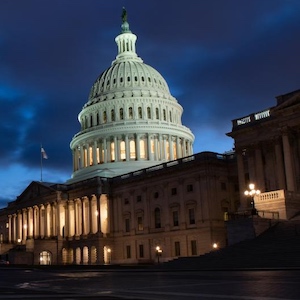
On Thursday, the House of Representatives passed an amendment aimed at removing Russian diamonds from global markets as part of the National Defense Authorization Act (NDAA).
The bill has now gone to the Senate for consideration, where it’s expected to pass. The Senate version can always change, and is not clear if the Russian diamond amendment—which was was authored by Rep. Tom Malinowski (D-NJ) but cosponsored by members of both parties—will become part of the final bill.
The amendment called for a report to be delivered within 180 days of the act’s passage, which details the effectiveness of Russian diamond sanctions and includes:
– An assessment on how current sanctions on Russian diamond producer Alrosa can be strengthened, using “mechanisms for traceability.”
– An assessment on how specific countries are implementing sanctions imposed on Alrosa, with a particular focus on countries that receive U.S. security assistance.
– A list of where wealthy Russian oligarchs, sanctioned or otherwise, have emigrated to following Russia’s invasion of Ukraine.
It asked that the relevant departments—State, Treasury, and Homeland Security—talk with key “industry associations and members, including grading laboratories, on matters of technical importance, including traceability and provenance.”
The amendment also called for the United States to work with “other participants in the Kimberley Process, including partner countries that provide avenues for sanctioned Russian oligarchs to protect their wealth, to develop a coordinated policy with respect to ensuring Russian rough diamonds, precious metals, or other assets are not used to circumvent United States sanctions on Russian oligarchs.”
It also called for the United States to use its “voice and vote” in the Kimberley Process (KP) to help get Russia expelled from the certification scheme.
On Thursday, JCK reported that the United States and its allies have begun to suspect that the KP—which requires absolute consensus—may not be the best avenue for limiting Russian diamonds.
In June, Malinowski said that the United States should “consider the imposition of secondary sanctions on individuals or entities facilitating significant transactions on behalf of Russian sanctioned persons (SDNs), including oligarchs.”
He noted that, despite the imposition of sanctions on Russian diamond producer Alrosa, Middle Eastern and South Asian diamond importers continue to purchase Russian rough diamonds from the company.
“After receiving rough diamonds, they are often traded multiple times and polished in these third countries and then resold as the third country’s product,” he said. “This lack of traceability in the industry has created an enforcement challenge that could transform the diamond trade into a channel for bypassing U.S., U.K., and EU sanctions.”
Both the United States and the United Kingdom have sanctioned Alrosa and Russian diamonds, though they currently allow them to be imported if they are cut and polished elsewhere. The European Union has no current sanctions on Alrosa or Russian diamonds.
Photo courtesy of the office of Rep. Tom Malinowski
- Subscribe to the JCK News Daily
- Subscribe to the JCK Special Report
- Follow JCK on Instagram: @jckmagazine
- Follow JCK on X: @jckmagazine
- Follow JCK on Facebook: @jckmagazine






